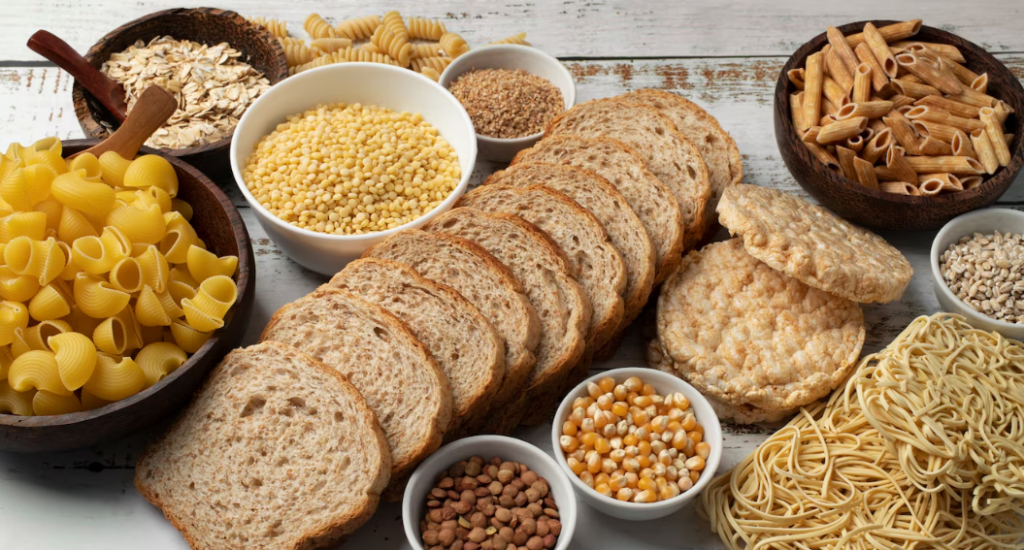Maintaining a healthy diet is essential for overall well-being, but with so many options available, it can be overwhelming to choose the right plan. A nutritious and easy healthy diet plan doesn’t have to be restrictive or complicated—it’s about balance, variety, and sustainability. Whether you’re looking to lose weight, boost energy, or simply improve your eating habits, this guide will walk you through simple yet effective diet plans to help you achieve a balanced lifestyle.
Why a Balanced Diet Matters
A balanced diet provides your body with the essential nutrients it needs to function optimally. It supports immune health, improves mental clarity, and reduces the risk of chronic diseases like diabetes and heart disease. A well-rounded diet includes:
- Proteins: Essential for muscle repair and growth (e.g., lean meats, beans, tofu).
- Carbohydrates: The body’s primary energy source (e.g., whole grains, fruits, vegetables).
- Fats: Necessary for brain function and hormone production (e.g., avocados, nuts, olive oil).
- Vitamins and Minerals: Support various bodily functions (e.g., leafy greens, dairy, seafood).
- Fiber: Aids digestion and keeps you full longer (e.g., oats, legumes, berries).
By incorporating these elements into your meals, you can create a sustainable diet that fuels your body without deprivation.
Simple and Nutritious Diet Plans
Here are three easy-to-follow diet plans that promote a healthy lifestyle without extreme restrictions:
The Mediterranean Diet
Inspired by the eating habits of countries bordering the Mediterranean Sea, this diet emphasizes whole foods, healthy fats, and lean proteins. Key components include:
- Plenty of fruits, vegetables, and whole grains.
- Healthy fats like olive oil and nuts.
- Moderate amounts of fish, poultry, and dairy.
- Limited red meat and processed foods.
Studies show this diet reduces heart disease risk and promotes longevity.
The Plant-Based Diet
Focusing on whole, plant-derived foods, this diet is rich in fiber, antioxidants, and essential nutrients. It includes:
- Vegetables, fruits, legumes, and whole grains.
- Nuts, seeds, and plant-based proteins like tofu.
- Minimal processed foods and animal products.
A plant-based diet can improve digestion, lower cholesterol, and support weight management.
The Flexitarian Diet
A flexible approach to vegetarianism, this diet encourages mostly plant-based meals while allowing occasional meat. Benefits include:
- Increased intake of nutrient-dense plant foods.
- Reduced consumption of processed meats.
- More sustainable eating habits.
It’s a great option for those transitioning to a healthier diet without giving up meat entirely.
Tips for Sticking to Your Diet Plan
Adopting a new eating habit can be challenging, but these strategies can help you stay on track:
- Meal Prep: Plan and prepare meals in advance to avoid unhealthy last-minute choices.
- Stay Hydrated: Drink plenty of water to curb cravings and support metabolism.
- Portion Control: Use smaller plates to manage serving sizes and prevent overeating.
- Mindful Eating: Pay attention to hunger cues and savor each bite to avoid emotional eating.
- Allow Treats in Moderation: Occasional indulgences prevent feelings of deprivation.
Consistency is key—small, sustainable changes lead to long-term success.
Common Mistakes to Avoid
Even with the best intentions, people often make these dieting mistakes:
- Skipping Meals: Leads to overeating later and slows metabolism.
- Over-Restricting Calories: Can cause nutrient deficiencies and fatigue.
- Ignoring Hunger Signals: Eating too little or too much disrupts balance.
- Focusing Only on Weight Loss: Health is about more than just numbers on a scale.
- Not Customizing the Plan: A diet should fit your lifestyle, preferences, and health needs.
By avoiding these pitfalls, you can maintain a healthier relationship with food.
Conclusion
A nutritious and easy healthy diet plan is about making informed choices that support your well-being. Whether you choose the Mediterranean, plant-based, or flexitarian approach, the goal is to enjoy a variety of foods while nourishing your body. Remember, balance and moderation are more sustainable than extreme restrictions. With the right mindset and practical strategies, you can achieve a healthier, happier lifestyle—one meal at a time.

